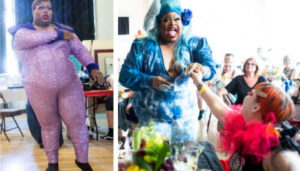House Republicans on the Natural Resources Committee, led by Chairman Bruce Westerman, are raising concerns and investigating the Biden administration’s proposal to allow private ownership of public lands, labeling it as an energy and national security risk. The focus of their investigation is the Securities and Exchange Commission’s (SEC) controversial proposed rule change that introduces a new type of public company known as Natural Asset Companies (NACs), allowing them to be traded on the New York Stock Exchange (NYSE).
NACs are designed to protect, restore, and grow natural assets under their management to foster healthy ecosystems. The SEC’s proposed rule could permit NACs to be traded publicly. House Republicans argue that this may have significant implications for the management of federal lands, wildlife habitat conservation, and responsible development of natural resources.
The lawmakers expressed deep concern over the potential consequences, emphasizing that the proposed rule might enable private investment interests to control and manage national parks and other publicly owned lands. They see this as an unprecedented power grab and a threat to federal authority. The Federal Land Policy and Management Act of 1976, which established the “multiple-use” and sustained yield mandate, requires the Department of the Interior to open managed lands for various purposes, including energy development, grazing, recreation, and mining.
Republicans argue that NACs could lead to decisions on federal lands controlled by these companies being influenced by eco-activists rather than Congress or government scientists. They also raise concerns about the possibility of offshoring energy production, potential foreign ownership of public property, and the risk of foreign entities investing in companies that control public land. The lawmakers stress the importance of maintaining control over critical mineral production and avoiding increased dependence on foreign countries.
The SEC’s proposal has faced criticism from multiple fronts, with stakeholders seeking more time for public comment and concerns raised about the financialization of natural processes. Critics, including state financial officers and attorneys general, argue that NACs present national security risks and may allow foreign adversaries to invest in and control U.S. natural resources.
The investigation by House Republicans adds another layer to the ongoing debate over the appropriate balance between conservation, economic development, and national security concerns. Critics argue that the proposed rule, if implemented, may have far-reaching consequences for industries such as ranching, farming, and energy production, impacting millions of acres of public land and potentially limiting access for recreation and hunting.





